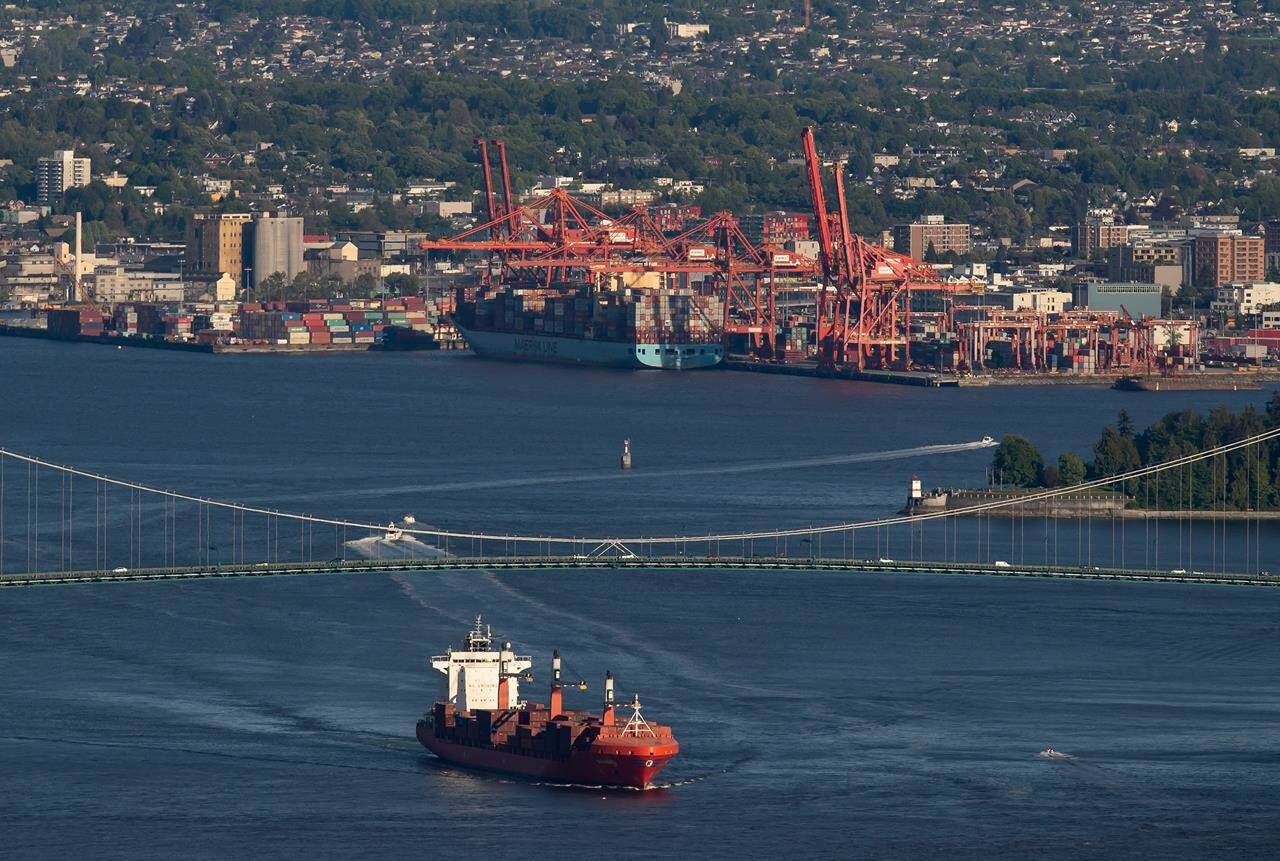Global shippers convened in Montreal on Thursday to sort out which sustainable fuels their vessels should use — a key question given that boats built today will still be running in 2050.
At the annual International Chamber of Shipping summit, chairman Emanuele Grimaldi — who is also managing director of the Italian private shipping conglomerate, the Grimaldi Group, whose revenues topped $7 billion last year — said different fuel types make sense for different vessels.
But he added governments, producers and the transport sector need to reach consensus on green energy.
Options range from methanol and ammonia to hydrogen and nuclear propulsion in an industry where currently about 58,000 cargo ships run mainly on “bunker fuel” — heavy fuel oil with even higher sulphur levels than diesel.
The global industry group, which represents over 80 per cent of the world’s merchant fleet, is calling for a levy on maritime greenhouse gas emissions to encourage adoption of renewable fuels.
However, Grimaldi also said governments need to push for greater supply, given the lack of sustainable fuels as the sector aims for net-zero emissions “by or around 2050” — the target laid out last year in a plan by the United Nations’ International Maritime Organization, which regulates global shipping.
“There is no availability for these types of fuels, not so far,” Grimaldi told reporters.
“We are looking with keen interest to methanol, because methanol can also be produced through the garbage.”
Agricultural waste, city garbage and lumber residue such as leaves and branches all represent sources of feedstock for so-called bio-methanol — “something that is gold,” Grimaldi said, citing its projected future value.
Ammonia, which emits no carbon dioxide during combustion, is also viewed as a potential power source for cargo vessels. But the compound is costly as well as flammable and corrosive — a risk for seafarers and, should leakage occur, aquatic life.
“Today the engines are not available,” Grimaldi said. The hard-to-burn fuel requires a specialized internal combustion process. The first-ever ammonia-fuelled ship engines are expected for delivery later this year or in early 2025.
“For our passenger ships and for our ferries, we are looking more at methanol,” said Grimaldi.
“We know that methanol might be very poisonous,” he added. “No one would be in the engine room.”
Smaller vessels might be able to run on battery power. Farther into the future, nuclear fusion could propel freighters and container ships, Grimaldi said. As for green hydrogen — produced from renewable electricity — “it might be very explosive,” though demand could still be significant if safety is accounted for.
From shipping to aviation, a shortage of sustainable fuel plagues the transport world even as countries lay out ambitious goals to slash emissions and curtail global warming.
In Canada, carriers and marine shippers have asked the federal government to beef up funding for sustainable transport, money they hope will flow toward green supply chains and upgrades to existing infrastructure.
Tax credits, loans and grants are essential to help companies churn out less carbon dioxide and keep pace with other nations’ transportation networks, according to the National Airlines Council of Canada and the Chamber of Marine Commerce.
“The marine sector will be one of many consumers and users of these new fuels,” said chamber CEO Bruce Burrows.
“We’ll all be queuing up and wanting some sort of preferential treatment,” he said. “That’s going to be a competitive world — there will be limited supply and there will be lots of demanders.”
At the Port of Montreal, members of the International Chamber of Shipping planned to take an informal vote Thursday on which renewable fuels have the most potential.
Summit attendees also highlighted rising protectionism and global strife as barriers to maritime trade that ultimately push up costs for consumers.
On Wednesday, the European Union announced it will impose tariffs of up to 38 per cent on electric vehicles shipped from China. The move followed a hike in the U.S. that raised levies on Chinese EVs to 100 per cent from 25 per cent.
“There’s been a lot of lobbying in America from unions for a tariff on Chinese-built ships coming into U.S. ports in order to subsidize the American shipbuilding industry,” said Guy Platten, secretary general of the International Chamber of Shipping.
“It’s this creeping effect all the way through which, taken in isolation, one at a time, we think, ‘Well, that’s OK, we can cope with that.’ But taken as a whole, it’s something that we need to call out.”
Added Grimaldi: “There is nothing more infectious than protectionism. If one starts, there will be a race.”
Meanwhile, many freighters and container ships continue to make weeks-long detours around the tip of Africa rather than sail through the Red Sea, where Houthi militants have attacked vessels since November.
This week, the Iran-backed fighters claimed responsibility for attacks on boats that damaged a Greek-owned cargo ship and necessitated a rescue near the Red Sea port of Hodeidah in Yemen.
Platten said that “geopolitical headwinds — from the action in the Red Sea to piracy, (which) is now raising its head again” — make for troubled waters in a sector also facing labour woes internationally and in Canada.
At the Port of Montreal, some 1,200 dockworkers remain in mediation as they try to hash out a deal with employers amid fears of a strike.
“There has been some rerouting here in Montreal, but so far minimally,” said Burrows.
READ ALSO: UVic is working on Canada’s first zero-carbon emissions shipping corridor
READ ALSO: More shippers and shipping companies promise to avoid Arctic routes

